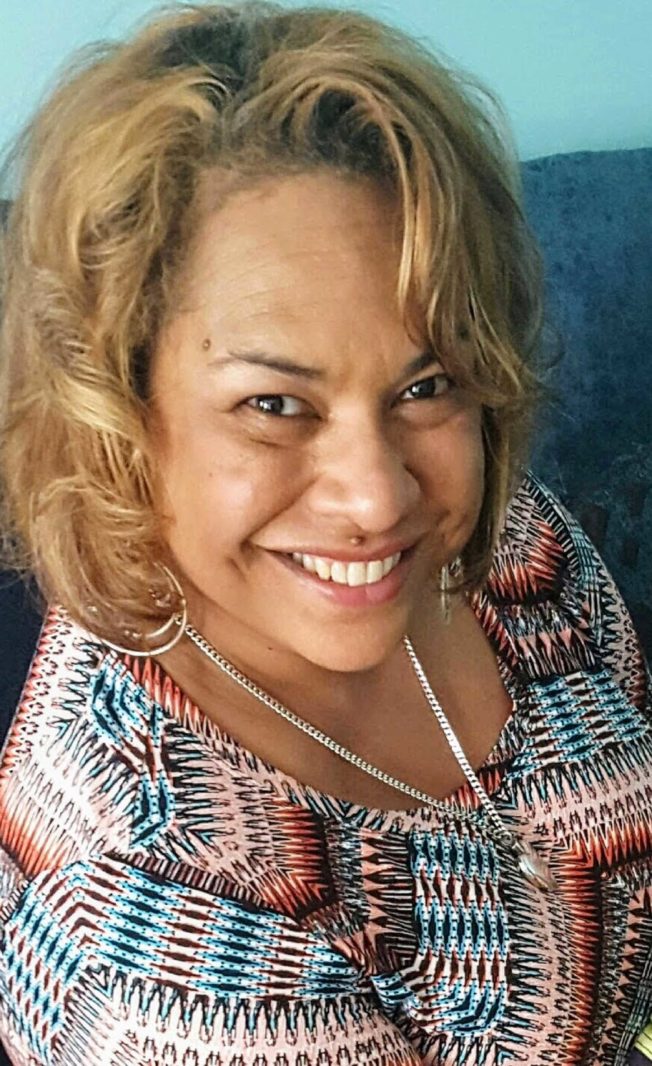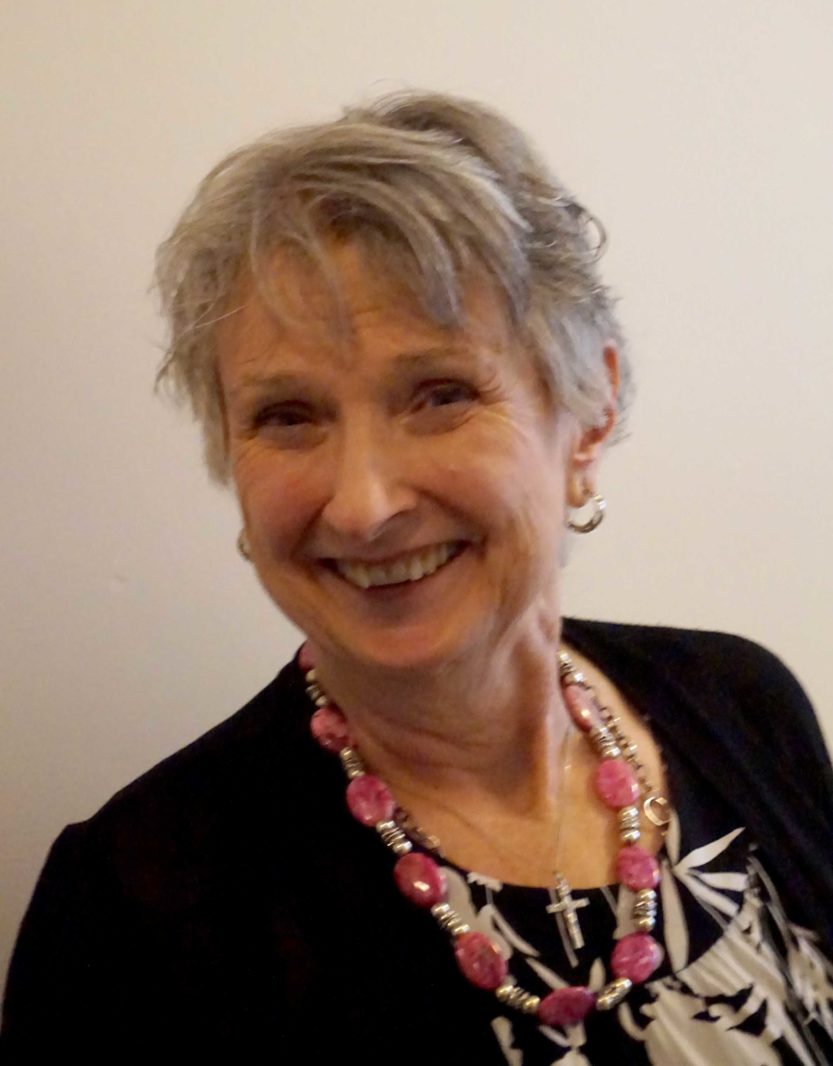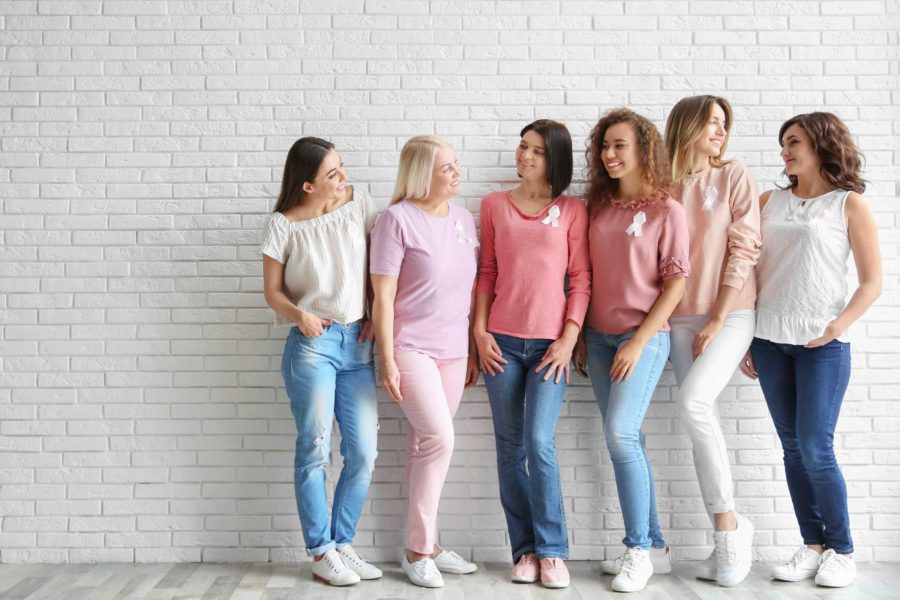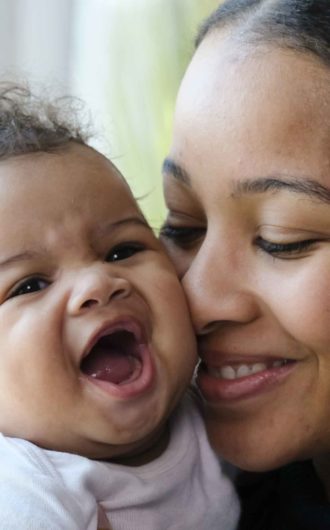As we’re in the thick of Breast Cancer Awareness Month, it’s important that we show our support for those fighting breast cancer — and other cancers, as well.
Chances are highly likely that you’ve encountered breast cancer in some way or another. Whether you’ve survived it, are still fighting it, or know someone who has been diagnosed with it. In fact, about one in eight U.S. women will develop invasive breast cancer over the course of her lifetime.
That’s a lot of women. Have you been there for support? No one should be fighting breast cancer on their own.
A 2006 study in the Journal of Clinical Oncology helps to illustrate the importance of having social support during a diagnosis. In this study, the 2,835 women diagnosed with breast cancer between 1992 and 2002 were assessed by their social networks and their subsequent outcomes of survival.
The study ultimately found that “socially isolated women had an elevated risk of mortality after a diagnosis of breast cancer, likely because of a lack of access to care, specifically beneficial caregiving from friends, relatives and adult children.”
While social and emotional support is not a magical cure for breast cancer, it can help people we care about get through their darkest days and ready to fight the battle.
Five local breast cancer survivors opened up and shared with us what support did and did not help them during their diagnosis. They also offer advice for how we can best support people we love as they fight cancer, or really, any tough disease.
To Tell, Or Not to Tell

When Venatia Gilmer-Jones was diagnosed with breast cancer, she felt obligated to tell her family. Blood testing showed she had a mutation in the BRCA2 gene, a gene in charge of suppressing tumors.
It wasn’t until after her own diagnosis that she remembered when her aunt, who had also been diagnosed with breast cancer years earlier, had gathered her nieces to tell them. Gilmer-Jones was still a teenager. She hadn’t thought often about it, possibly because of how scary the talk seemed to her.
As someone who has spent years sharing her breast cancer story to young and old audiences at schools and hospitals, Gilmer-Jones says, “Something I always remember when I give presentations is the fear factor. I keep in mind to not go in and scare people, because they’re not going to process that information. Especially younger audiences.”
Gilmer-Jones says you might have family members who are afraid to share their diagnosis and health status with those around them.
“A lot of times women, especially women of color, can’t talk about it because they can’t see themselves in this position,” says Gilmer-Jones. Their role has always been to take care of everyone else around them.
“We’re not allowed to be sick,” she says. “We’re not allowed to be what they consider as ‘less than.’ I can’t even tell you how many women of color I have spoken to who would try to get up early in the morning, mop the floors and do the cooking before going to work and to their chemo appointment. They know that when they come back, they’re going to be too sick to do it.”
This “superwoman syndrome,” as Gilmer-Jones calls it, was something she saw in her own mother when her mother was diagnosed with lung cancer. “She said to me, ‘Nitia, do you think I should tell the family?’ I was like, ‘You’re thinking of not telling the family?’”
Gilmer-Jones says she told her mother, “You’re the matriarch, and now you’re sick. You have to tell them. You have to give them the opportunity to show you how much they love you.”
Before she passed away, Gilmer-Jones’ mom was able to spend quality time with her family members. “When my mom was in the hospital, I went to visit her and there were like six of my male cousins in the room with her. They were talking, laughing and my mother’s eyes, they were just filled with joy.”
Boosting Energy Levels

Linda Riley was working as a vice president of an advertising agency, traveling between New York and Boston, when she was suddenly diagnosed with breast cancer in 1989.
“It came out of the blue,” she says. “There’s no history of cancer in my family and the cyst grew very quickly. It wasn’t found in a routine mammogram,” but discovered as a lump at home.
“You have so many things that get affected like your energy level and day to day living,” says Riley. What helped was when her friends brought cooked meals like lasagna to her home.
“I was very fortunate to receive a lot of support from family, friends and my church community,” she says. “They brought food for us for several days. When you’re feeling really lousy, and you don’t want to get up off of that recliner, [or] your stomach is a little rocky and somebody says to you, ‘Hey, just take a big potato and stick it in the microwave, it’s not going to upset your stomach,’ was amazing.”
What also really helped Riley deal with her breast cancer at the time was the support of two women from her church who had survived breast cancer.
“They were alive … and that’s pretty important,” she says. “Just to see someone who has been down that road and is still alive is one of the reasons the breast cancer walk is so important.”
Riley references the annual American Cancer Society’s Making Strides of Boston , which she has previously participated in and is where she has met other survivors of breast cancer who want to lend their support.
When she completed her treatment, Riley realized that she could also be helpful to someone else. “That motivated me to be a volunteer for about 30 years with the American Cancer Society,” she says.
In her role in the Reach to Recovery Program, she has counseled many breast cancer patients. She says, “You would be amazed at how many people have no support system. It’s tragic.”
Spread Support All Around
At 40 years old, Chien-Chi Huang was diagnosed with breast cancer in 2005.
In some Asian cultures, “cancer, especially breast cancer, is highly stigmatized and is taboo to talk about,” says Huang, who is from China.
When Huang’s mother had cancer, the word “cancer” was never even used, even during doctor’s appointments. Instead, it was just called a “tumor.”
Huang relates her experience to the recently released American movie, “The Farewell,” in which a Chinese family hides a terminal lung cancer diagnosis from the patient herself, the family’s matriarch grandmother. Why? Due to cultural beliefs of who should carry the emotional burden of a medical diagnosis.
“I wasn’t very well supported, unfortunately,” says Huang. “That’s how I was motivated to start the Asian Breast Cancer Project in 2010, and then the Asian Women for Health nonprofit in 2012.”
The Asian Women for Health nonprofit, is a community-based network dedicated to advancing Asian women’s health and wellbeing through education, advocacy and support. Huang says she works to empower women of all backgrounds to share their story, normalize their experiences, and “emphasize that they may be somebody with cancer, but they are not the cancer themselves.”
Huang says that not only do breast cancer patients need support, but their loved ones do, too. “They are fearful of losing their loved ones. And they have to conquer emotional and financial hardships.”
She says our current health care system is not always set up to help people with this, “especially people with limited proficiency in English.”
“I’m an immigrant myself and even though I speak English and my husband is not Asian, I still have a difficult time navigating the landscape,” says Huang. “We need to do a better job with outreach to women who are under resourced and underserved.”
Help Someone Be an Advocate
In her 50s, Beverly Amaya was diagnosed with breast cancer in 1995 during a routine mammogram. The first person she told was her mother, who put on a strong front. The hardest part was telling her son, who was 10 at the time.
“When I told him, the first thing he asked me was, ‘Are you going to die?’” says Amaya. “It’s not an easy question to answer when your child asks you.”
Her husband was very supportive, reminding her to have faith and to pray that everything will be okay.
The support from her church community was enormously helpful as well. “People prayed for me. I am here by the grace of God,” says Amaya. “My second surgery was 10 hours long. I know I am blessed and here for a reason.”
Unfortunately, Amaya did not receive the same support at her workplace. In fact, she recalls having to go to her treatment appointments during her breaks — and then go back to work right after.
“I used to work for a company where I worked from 7 a.m. to 3 p.m. During my lunch and break, I would go for my treatment and come back to work,” she says. “If I passed over my time, I had to make up my time at the end of the day.”
Unbelievably, her manager was aware of what she was going through, but she was not informed enough. “She was comparing me with another coworker who had cancer, but didn’t have to do the same treatment plan. Well, my body and her body, we’re two different bodies,” says Amaya.
Amaya endured her treatment for six weeks, five days a week. The only time she did not return to her office was on her last day of treatment. “I was so sick. It was bad. I could not make it back to work, and I don’t know how I got home that day,” she says.
Through this incredible hardship, what gave her strength was the thought of being there for her family. “My co-workers used to say to me, ‘Beverly, how do you do it?’ and I said, ‘You know what, I have to do it. I have my kids. I have to be there for my kids.’”
Power in Numbers
In 2001, Adreenne Law found a lump in her breast that did not go away. It only got bigger.
“I called and cried to my mom as soon as I found out my diagnosis,” she says. She then broke the news to her husband, who had just been diagnosed with cancer a month before — although his was in the early stages.
“Mine was on the fast track, so the doctors did my lumpectomy first. My mom came up from Louisiana for my surgery,” she says. Law took two weeks off from work for the surgery and continued to work full time during her radiation treatment plan.
Law recalls her boss giving her a hassle for having to take time off for treatments. “I had to address it head on with her and HR,” she says. “I don’t need permission from you to live or die. That’s what I said to her.”
Although Law’s family was there to support her during her diagnosis and treatment, “they don’t really know what you’re experiencing. The pain, the mental thoughts, the anguish,” she explains.
Law wanted to talk to other women who knew what having cancer was like. She sought out support groups in Boston, and found one called Spirit Wise Sisters for breast cancer survivors of color, organized by YW Boston.
Although the Spirit Wise Sisters folded, Law and two other group members have continued to stay in touch. They regularly check in with one another. “Venatia, (Gilmer-Jones) Beverly, (Amaya) and I decided we were going to reach out and be there for each other.”
“Each person’s body reacts differently as time goes on. You don’t really know the long-term effects of chemo. But, when we hear about each other’s issues, and we’re also going through it, it really helps,” she says.
Law describes sisterly support group as being “thrivers, not just survivors.”



 10 min read
10 min read



